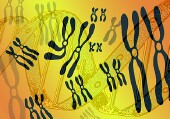
SUNDAY, Nov. 22 (HealthDay News) — Researchers are reporting that a genetic variation — a missing gene — boosts the risk that someone who’s had a bone-marrow transplant will develop a complication called graft-versus-host disease.
The immune system-related complication occurs after surgery when the recipient has the variation and the donor does not.
When that’s the case, the immune cells from the donor go on the attack against the recipient’s tissues.
“This finding gives us a glimpse into the genetic incompatibilities that can complicate transplants,” the study’s lead author, Steven McCarroll, an assistant professor at Harvard Medical School and an associate member of the Broad Institute of MIT and Harvard, said in an institute news release. “There are likely many other compatibility loci left to be found, and with the enhanced capabilities for surveying human genetic variation, it will become increasingly feasible to find them.”
As for developing a test to look for the genetic variation, McCarroll said it’s not clear yet if that’s necessary.
The findings appear in the Nov. 22 online edition of Nature Genetics.
More information
The U.S. National Library of Medicine has more on bone marrow transplants.

